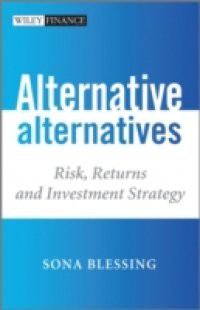In the aftermath of the financial crisis, investors are searching for new opportunities and products to safeguard their investments for the future. Riding high on the wave of new financial opportunities are Alternative Alternatives (AA). However, there is a dearth of information on what Alternative Alternatives are, how they work, and how they can be profited from. The book defines what Alternative Alternatives are, based on research and the following hypothesis: If the source (origin) of the risk lies outside of the financial markets, then it should be insulated from the vagaries of those markets. The book identifies and examines such and other unique, idiosyncratic, and difficult to replicate sources of risk - assets and strategies. The recent credit and sovereign debt crisis have served to defend the hypothesis and have upheld the conclusion that alternative alternative assets and strategies offer a risk-return profile that is distinct to those offered by traditional and main stream hedge fund strategies. These strategies include timberland investing, insurance risk transfer, asset/loan based lending (aviation, shipping, trade, entertainment, litigation financing etc), collectables and extraction strategies such as volatility and behaviour finance. This book will be a one stop resource to the new investment class known globally as Alternative Alternatives (AA) and will provide a comprehensive but accessible introduction to these assets. It provides an in-depth analysis of the assets and strategies which will leave investors with everything they need to identify and allocate to the best AA for them. It reviews the asset on a standalone basis, providing an explanation of the product, its characteristics, a SWOT analysis, and details its risk/reward drivers. The book also looks at how to integrate the asset within a portfolio - its peculiarities, the challenges and the constraints of each. Next, the book shows how Alternative Alternatives are used in the real world, how they are implemented, and the results that they have achieved. Finally, the book looks at the scope, scalability and prospects for each asset in the future.

